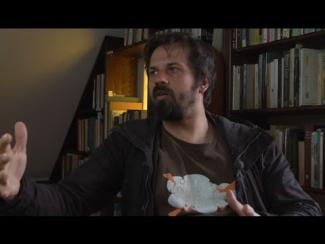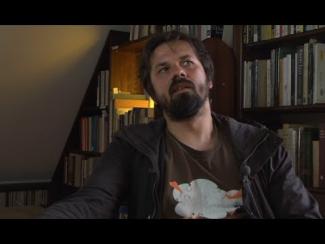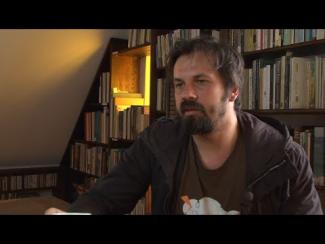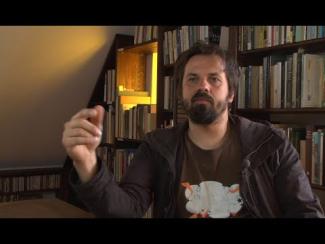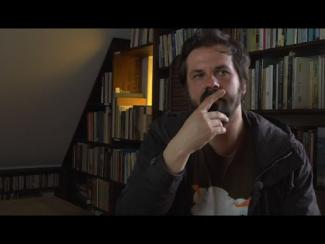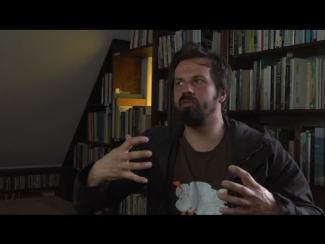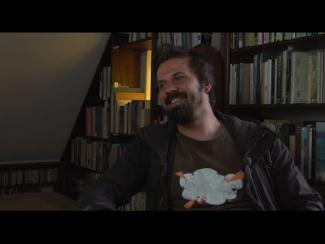The Yiddish Book Center's
Wexler Oral History Project
A growing collection of in-depth interviews with people of all ages and backgrounds, whose stories about the legacy and changing nature of Yiddish language and culture offer a rich and complex chronicle of Jewish identity.
Michal Moniuszko's Oral History
Michał Moniuszko, musician and teacher, was interviewed by Christa Whitney on May 4, 2013 in Sejny, Poland, where he grew up in a Roman Catholic family. The community is small, and everyone knows each other. The natural landscape is beautiful. Michal was interviewed at his workplace, the Borderland Center of Arts, Cultures and Nations – a unique organization which works to educate young people about the multicultural history of this area, primarily through the arts. Michal knew little about what happened in his town during the Holocaust or of the lives of the Jews who were the majority group prior to that time. A few pages in the history books were devoted to the Holocaust but there was little about the vibrant Jewish culture that existed here prior to the war. When the Borderland Center was mounting the play "Dybbuk: Between Two Worlds" in 1996 in the building where the interview took place, Michal learned that it was originally a synagogue which had been converted into a fertilizer warehouse. The yeshiva was replaced with a shoe factory and a famous Hebrew gymnasium became a post office; the history of the buildings had basically been erased. After the Ansky performance, Michal started reading Yiddish authors in Polish and, as a hardcore rock musician, started performing Yiddish music such as nigunim and klezmer. His band was invited to the Jewish Culture Festival where they met many well-known klezmer musicians from the United States. One outcome was forming an organization with David Krakauer called "Musicians' Raft" to encourage collaboration. Many of the American klezmer musicians have roots in Poland. Michal recalls finding CDs of klezmer music and falling in love with the genre. It is interesting that this music was "rescued" by American musicians and is now making its way back to its birthplace. Michal talks about meeting a Jewish man from Sejny who came to see the place where his entire family was killed or deported to Treblinka; he was the only one who managed to escape. He sang kaddish for his family on the road built by the Germans out of the gravestones from the Jewish cemetery that they had destroyed. He became a rabbi and cantor in Buenos Aires and has come back to play with the musicians here several times. Michal and his colleagues are now working on composing music for poems of Morris Rosenfeld's that have not yet been made into songs; Rosenfeld was born nearby and became the famous "poet of the sweatshops" in America. Michal shares his teaching style and talks about singing songs such as "Az der rebbe zingt" with young children in Yiddish and Polish. He ends the interview musing about the vulnerability of culture to destructive impulses – this generates feelings in him comparable to experiencing signals from a "phantom hand" which has been amputated.
This interview was conducted in English.
Michal Moniuszko was born in Sejny, Poland in 1977.

